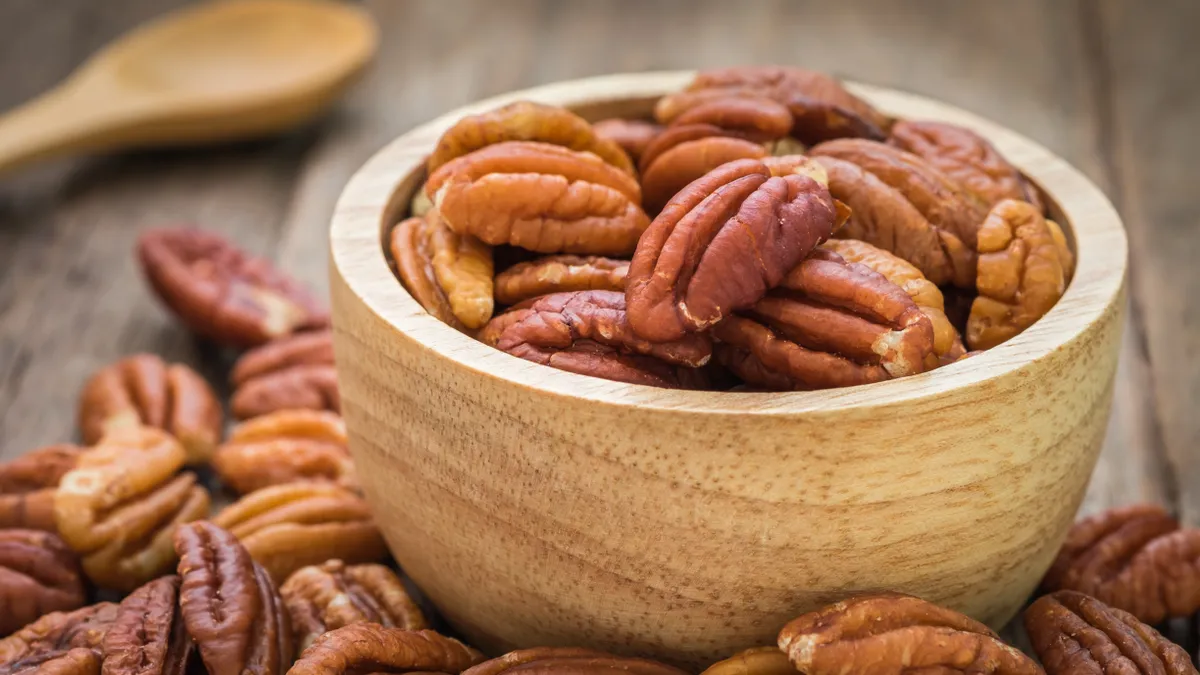While Hurricane Helene wreaked havoc on many crops in the Southeast, the pecan — one of Georgia's most beloved and iconic exports — has been hit particularly hard.
The recent hurricane isn’t the first time the crop has faced destruction, though. Over the last 50 years, Georgia has lost 70% of its pecan trees, having a profound impact on farmers.
A pecan tree takes 20 to 25 years to reach its full production potential. Some experts predicted Helene damaged about one-third of Georgia’s pecan production area, according to the Augusta Chronicle. The paper estimated 75%, or more than 36 million pounds of this year's crop in the storm-affected region, has been lost.
In the wake of this devastation, farmers and food manufacturers need to make sure they are prepared for the next disaster by making their supply chains as resilient as possible, according to Laura Shenkar, founder and CEO of pecan milk brand PKN.
Farmers across Georgia and Alabama depend on those pecan trees for their livelihood.
“So many of them have lost their crop, they're now decimated by the storm,” Shenkar added. “They're closed and likely not able to reopen any time soon.”
Pecans are one of the only tree nuts indigenous to U.S. soil. They have experienced far worse weather conditions than Hurricane Helene, she said.
Shenkar said pecan growers can look to almonds as a blueprint for what can happen to supply chains of a certain ingredient from distinct geographical regions.
“At one point, all the almond crops were pretty much under one state and under very tight regulations in California. What that enabled them to do is create a uniform, predictable supply of products, and they had to eliminate a lot of the waste,” said Shenkar.
One way that PKN is building up its resilience to disasters is through partnerships and cooperatives that give consumers a direct line to farmers.
Southern Roots, one of its partners, is a wholesale supplier of both in-shell and shelled pecans. Many of the farms within the grower-owned cooperative are multi-generational. Consumers feel like their purchase of PKN milk is making an impact, Shenkar said.
Through the partnership, consumers have a transparent view of how their crop is performing. When consumers see their growers struggling, they can support them.
Pecans also have sustainability attributes that have yet to be fully explored, including potential for them to be upcycled to create new products.
“Pecan cases that would be thrown away otherwise, no matter how small, can be made into pecan milk,” said Shenkar.
Compared to other nut milks on the market, the pecan is largely untapped, meaning few companies have used the tee nut to its fullest potential.
There are only a few companies that focus on pecan milk such as PKN, Pecana and Nuthatch, while larger plant-based companies, such as Elmhurst 1925, include it in their broader portfolio.
In order to be ready for what’s ahead, Shenkar said it's essential for companies to work with farmers and shellers, so that they have a viable product in 20 to 30 years.












